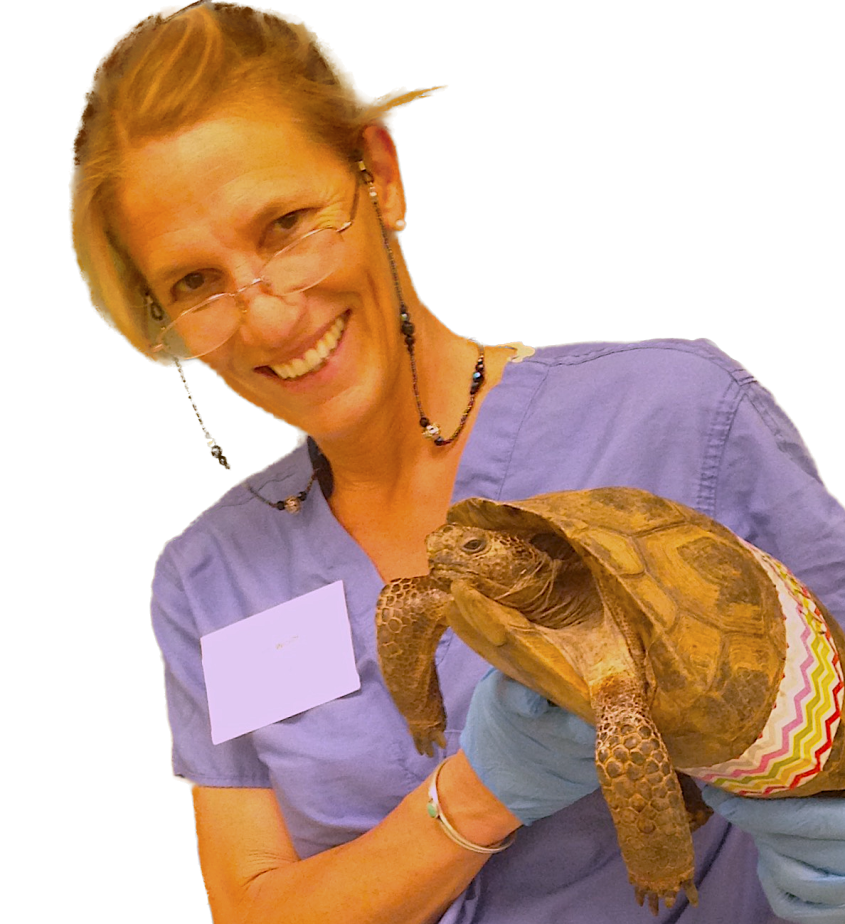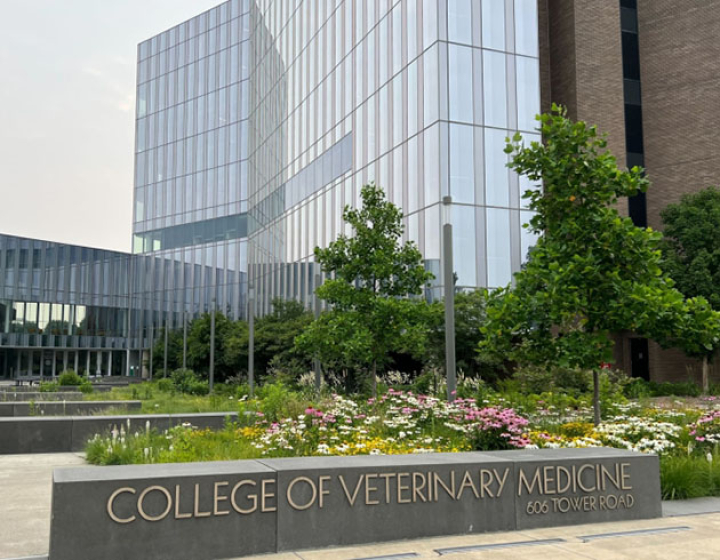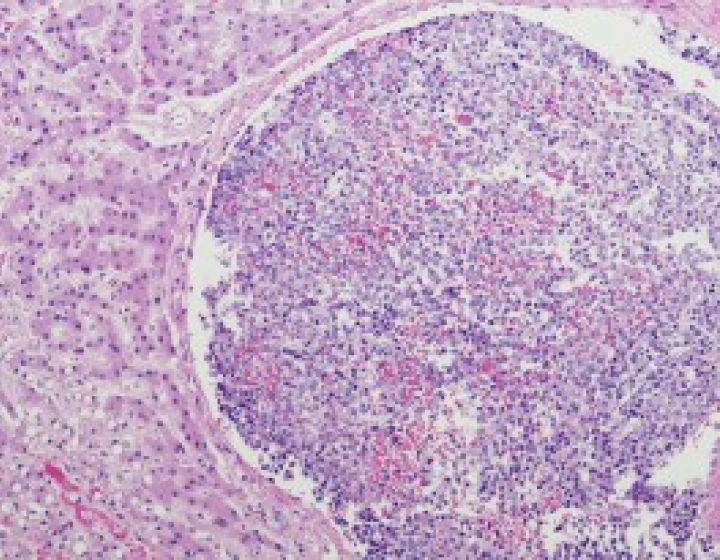Alumna champions wildlife, One Health
Over her 30-year career, Peregrine “Peri” Wolff, D.V.M. ‘84 has helped to ensure the wellness of wildlife in amazing environments. In 2022, she was invited to lend her expertise and passion to Cornell, serving on the College of Veterinary Medicine Advisory Council and the Women’s Engagement & Philanthropy Initiative. Her goal is to support the College of Veterinary Medicine’s focus on wildlife health and its connections to public, domestic animal and environmental health.
“I know many of the faculty at the Wildlife Health Center and am familiar with the great projects that they do, so this was an opportunity I couldn’t pass up,” she said. “Cornell has grown so much in its recognition and focus on the importance of wildlife health, biodiversity, and One Health. We humans, as just another animal species, need the natural world around us to be healthy and sustainable, for our own mental and physical survival. It would be great if this was a concept that all veterinary students graduating from Cornell appreciate…I would ask people to think a little more about the impact to wildlife in everything you do, because humans need healthy wildlife and wild places.”
Wolff’s goal is to encourage veterinary students to continue to embrace a more holistic approach to veterinary medicine and be champions for One Health.
“Our future veterinarians whether in an exam room, a laboratory, on the farm or in the forest will work with a wide variety of stakeholders from clients to politicians. It is essential that they have the skills to do so,” she said.
A lifelong passion
Wolff arrived at Cornell knowing that she wanted to work with exotic animals, but found the broad education in all species invaluable. “What helped me the most in my career was the excellent general education that I received at Cornell,” she said. “I was trained by working with all species and disciplines. Having a very broad base gave me the confidence to approach a problem in any species knowing that the basic set of skills I would need, I already had.”
After graduating, she would go on work at Lincoln Park Zoo in Chicago and the Minnesota Zoo in Apple Valley, Minnesota. “Lincoln Park Zoo is open to the public, which provided an early lesson for me in learning the value of working with all stakeholders in your community,” she said. “A small group of people often hung out in the heated and cooled buildings that housed big cats and primates, probably because they had less than ideal housing situations. They watched these animals all day and often knew more about what was going on with their behavior than the keepers. They would notice changes that no one else had. The same applies to free ranging wildlife. Hunters, hikers, and bird watchers are great sources for information on what is happening on the landscape. They can act as passive monitors of wildlife health.”
Wolff next took a position as the lead veterinarian managing the opening of Disney’s Animal Kingdom. The park features hundreds of species spread over 580 acres. Because the animals were spread over such a large area, Disney staff had to train them to come inside in case of emergencies, such as a hurricane. “All of those animals could be called off exhibit with a sound that was specific just to them, and they received a huge food reward once they were safely inside,” Wolff said. “This and other trained behaviors led to managing zoo animal health in a way that became a more routine and positive experience for the animals, keepers and veterinarians.”
From Disney, Wolff moved to southern California, where she ran her own business caring for animals in the entertainment industry. Later, she moved to Oregon and Nevada to work as a wildlife veterinarian where she ran disease surveillance programs for a broad range of species.
Wolff retired from the Nevada Department of Wildlife in 2020, after becoming the executive manager of the Wildlife Disease Association (WDA), an international scientific organization with members from more than 80 countries focused on the health of free ranging wildlife, and how it relates to our ecosystem and public health. She wants to use her broad range of experience to support and encourage wildlife health professionals working across the globe. “If you are interested in wildlife health in any specialty then we want you as a member of WDA,” she said. “Connecting, collaborating, exploring and sharing is vital to achieving our shared passion for conserving wildlife and biodiversity."
At this point in her career, Wolff is also focused on encouraging female veterinarians to take on leadership roles throughout the profession, part of her motivation for joining the Women's Philanthropy and Engagement Committee. When Wolff graduated from Cornell in 1984, she was part of the first veterinary class in the nation that was more than 50% female.
“Most graduating classes today are dominated by women, but we still need to see more women in leadership positions,” she said. “Volunteering on this committee is an opportunity for me to learn how to engage women to support Cornell and develop a stronger voice for all women.”
Written by Sheri Hall






